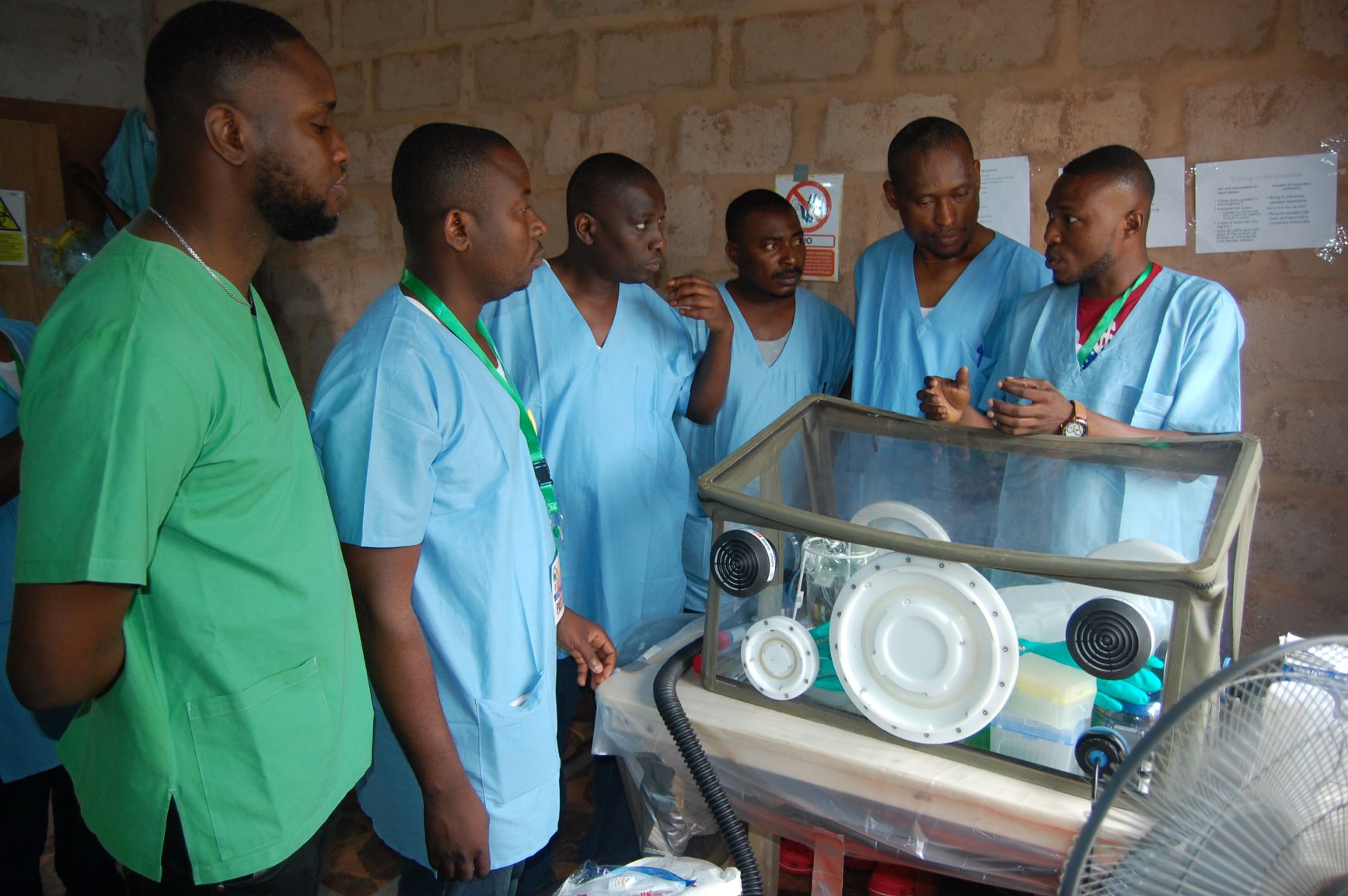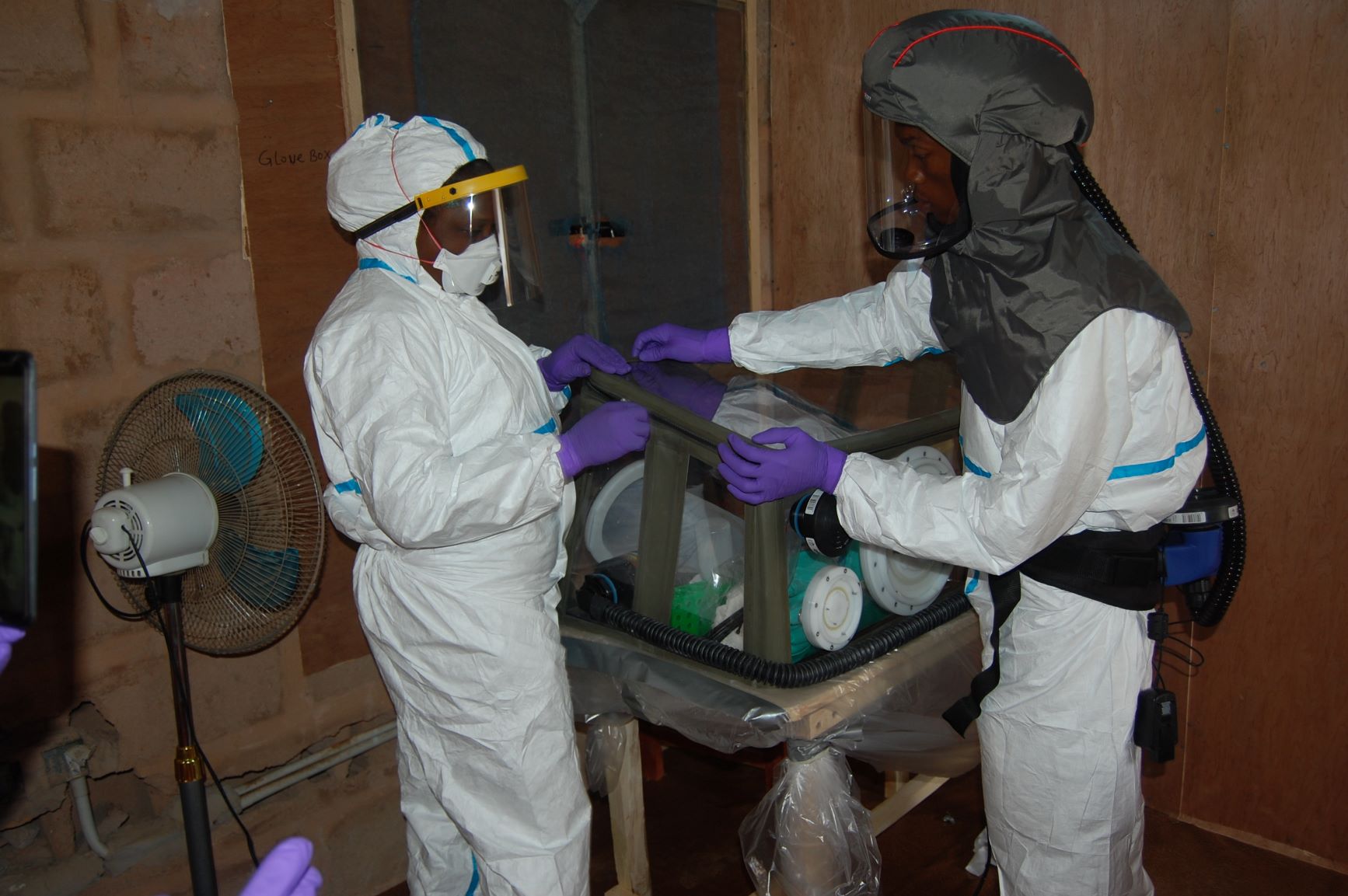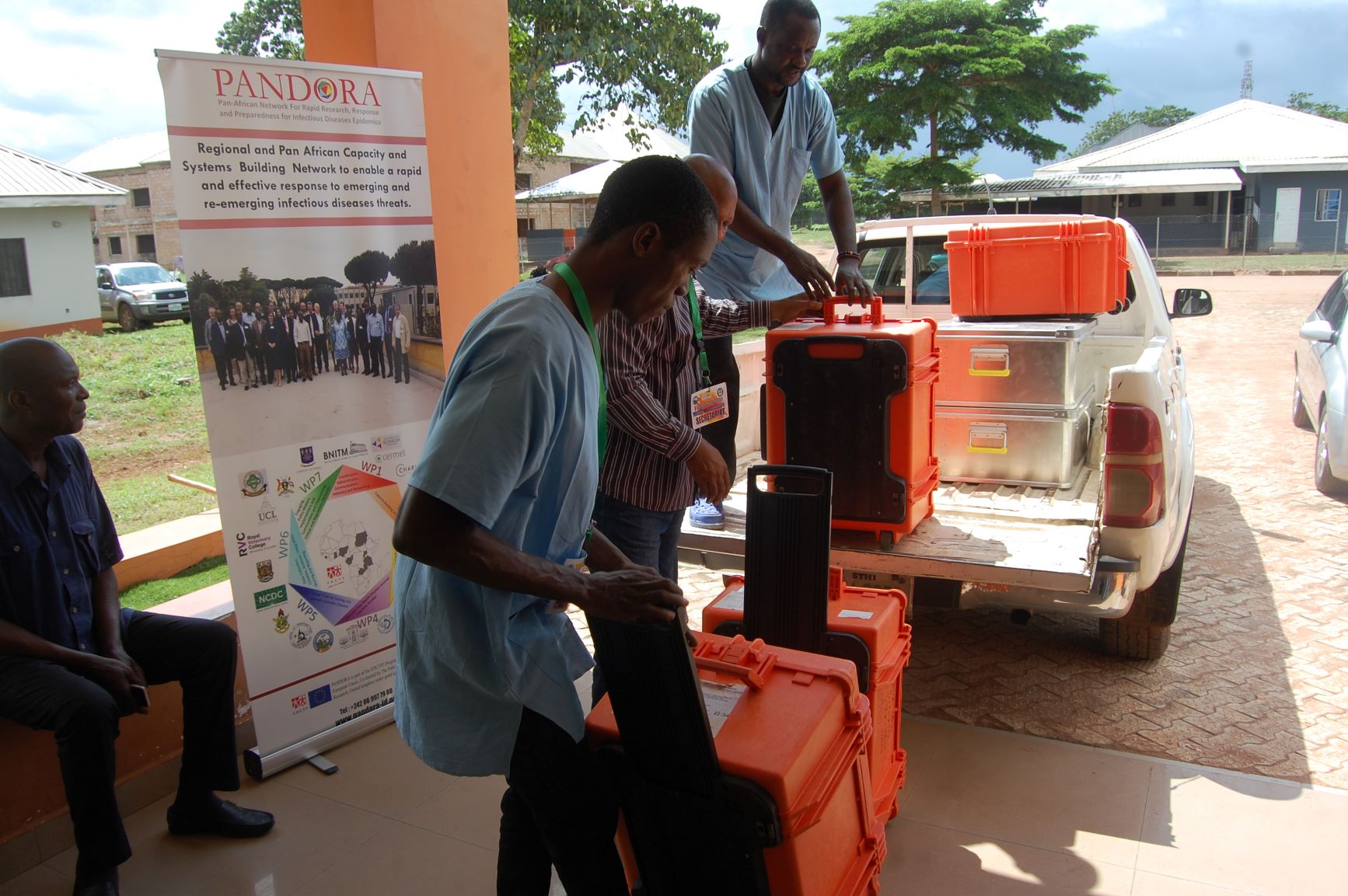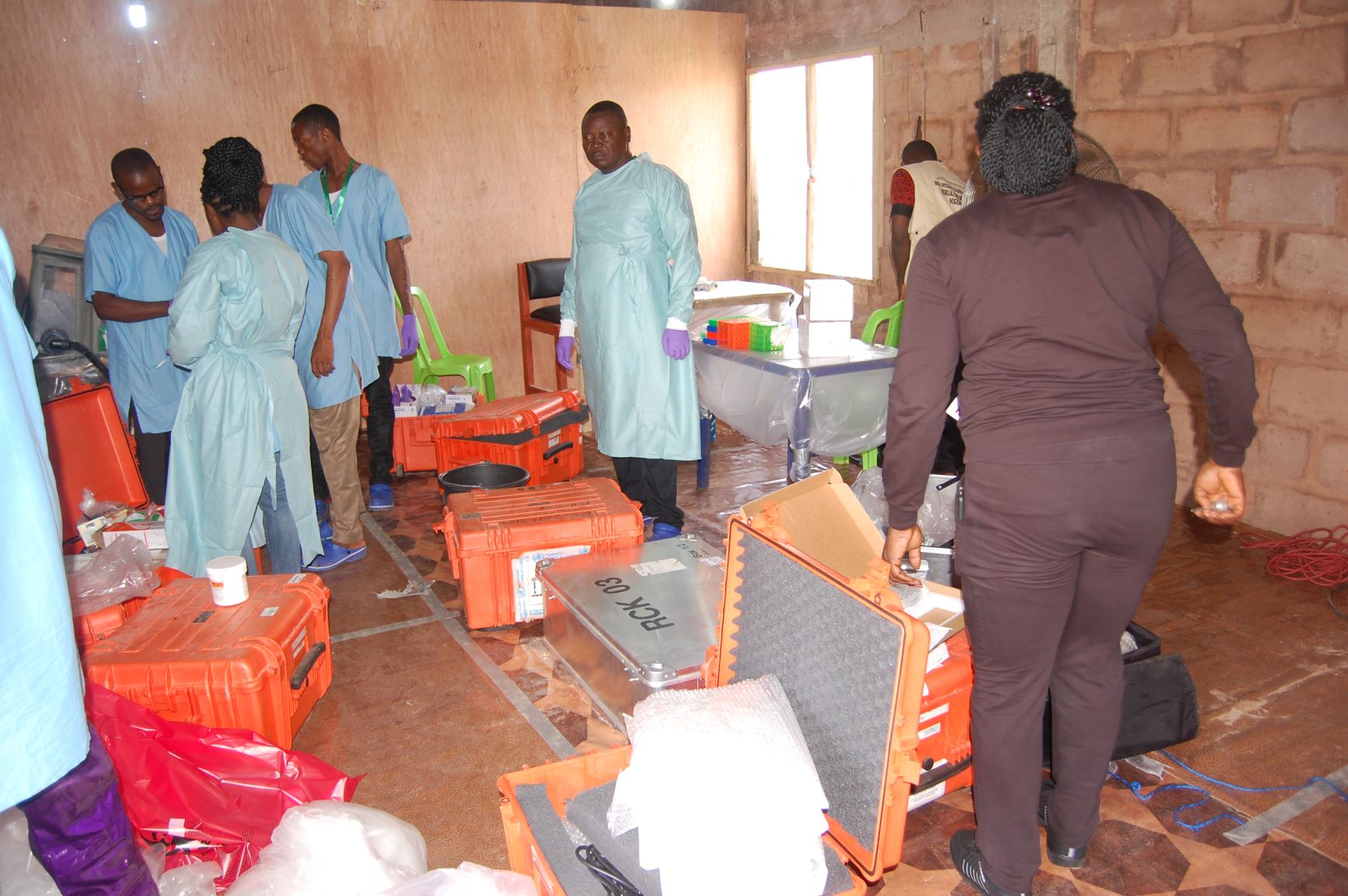From June 24–28 2019, the 1st West African sub-regional training workshop on the deployment of mobile laboratories for the response to an outbreak was held in Irrua Edo State, Nigeria.
Organized by Irrua Specialist Teaching Hospital (ISTH), member institution of the PANDORA-ID-NET Consortium in Nigeria, under the leadership of Professor Sylvanus Okogbenin and Dr Danny Asogun, this workshop which had the theme: "PANDORA-ID-NET's role in the response to infectious disease epidemics in Africa" was attended by teachers, researchers and students (MSc and PhD) from Nigeria, Benin, Ghana, Liberia, Togo, Sierra Leone and Congo.
The 6 parts to this workshop were as follows:
- Opening ceremony with the participation of the Deputy Governor of Edo State, the Ministry of Health, the WHO, the EU Commission, the CDC Nigeria, local authorities, customary chiefs, officials and faculty from the University of Irrua, members of the Advisory Committee, PANDORA Coordination, PANDORA Principal Investigator in Nigeria, and ISTH (High Ceremony) authorities, etc.
- Theoretical training at ISTH
- Practical training with the deployment of mobile laboratories in two (2) teams, practice and simulation on sites
- Restitution, discussions and validation of the results obtained by each group and evaluation of the participants
- Visit the Lassa Fever Institute of Irrua Specialist Teaching Hospital
- Ceremony of handing over certificates of participation and closing of the workshop.
During this workshop, participants learned how to quickly deploy and manage a mobile laboratory in an emergency situation. This training thus supports one of PANDORA-ID-NET's objectives to take leadership in Africa in terms of response operations on emerging and re-emerging epidemic infectious diseases and One Health, as well as MSc academic programs and PhD. This also contributes to the achievement of a big challenge for Work Package 2 (Capacity Building and Training).
Finally, at the end of this workshop, the participants benefited from the certificates after evaluation. They were satisfied with the training conditions, the quality of the modules developed, the simulations and practical cases applied, as well as the competence of the trainers and are able to deploy a mobile laboratory in the event of an epidemic (Lassa Fever, Ebola, etc.). They also expressed a wish to organize this training for the benefit of the other sub-regions of East, Central and South Africa, still under the leadership of ISTH-Nigeria. It should also be noted that one of the highlights of this training was the uptake of an already operational WhatsApp group to share information and experiences between the different participants and trainers in terms of research and in case of responses to epidemics in the different countries that participated in this workshop.




